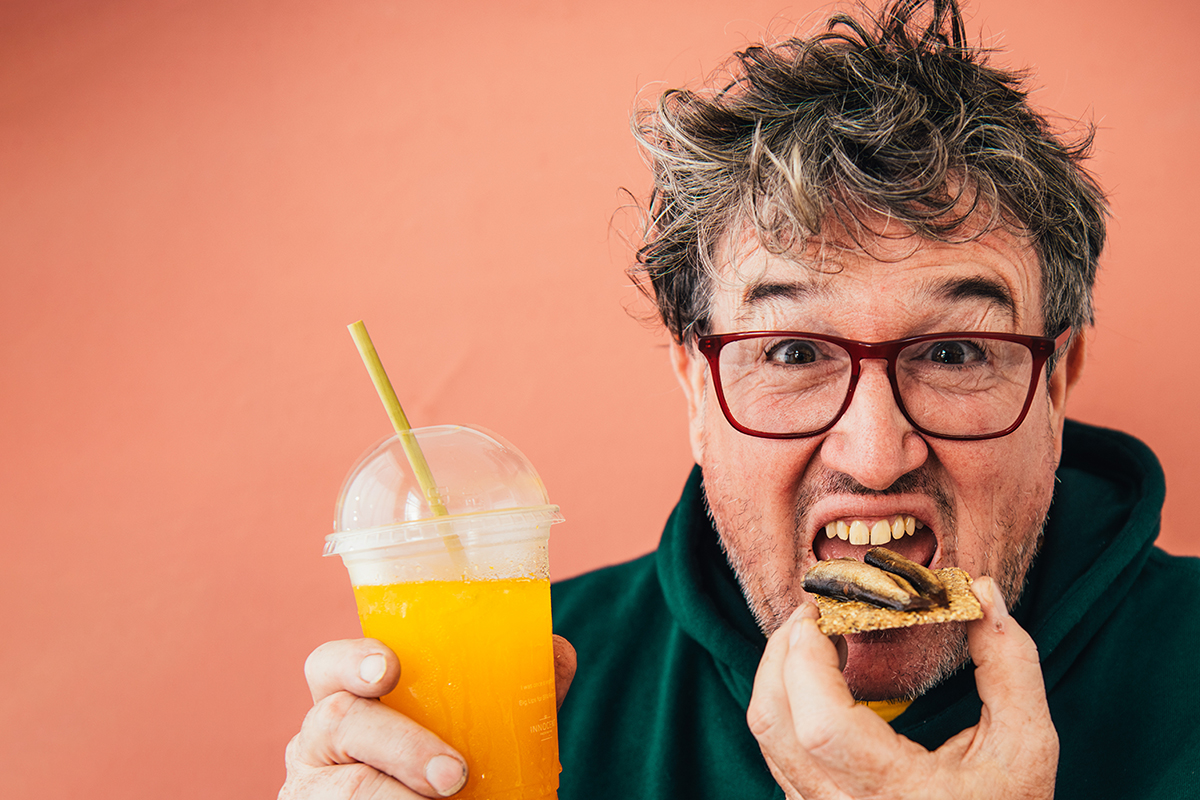My grandfather – Thomas Thomas, of the Tonypandy Thomases – lived to a ripe old age of eighty-something, despite being oblivious to the existence of Superfoods, unless you include the odd spoonful of cod liver oil.
He worked in the meat department at The Coop and claimed to have given rides on his bacon slicer. He stopped that practice when he started getting a little behind with his orders. Previous to that he’d made two trips overseas, both times to France during WW1, having been sent home wounded in between. His preferred mode of transport was a pair of highly polished black leather boots in which he went about his business and took his morning constitutional up Thistle Terrace.
A non-smoker, his alcohol intake was minimal and his diet was nutritionally sound, if repetitive. The goji berry and avocado supply to the Rhondda Valley was notoriously poor back in granddad’s time, but he was never heard to complain about it.
So I wonder then, how many extra years he could have lived had he gained access to today’s myriad Superfoods? My guess is none at all.
You see, the diet of one hundred years ago was all real food, much of it super and very little of it processed. Tinned fish and leafy greens were staples. Moderation was forced by circumstance and exercise was had daily due to the lack of a car. Superfoods back then were combined in a meat and three veg combo in order to cover all of the bases. This was often referred to as a good square meal.
Smoothies were freshly shaved chins. The food processing industry was just starting to use thickeners, fillers and added colours. The race to offer the cheapest processed foods was only beginning.
Gradually since then, our diets have become a mess of processed food and ever changing recommendations. They’ve been infiltrated by ingredients that are not nutritious at the expense of the goodness that only real food can provide. It’s our own collective fault, because we want cheap food. So we’re getting, quite literally, what we’re paying for.
Add the swinging pendulum of nutritional advice to the mix. Fat is good, fat is now bad, eggs are bad, eggs are now good. And the result is a confused populace convinced that food should be cheap, but oblivious to the fact that cheap food is not usually nutritious food. Confuse and conquer is the marketer’s plan. Sugar is ubiquitous, sweet as! Cheap and easy and a good preservative.
Our dietary predicament is real.
Enter then, Superfoods. The foods that will save us all. Instead of mending our ways and our menus we now lean on Team Super, when surely a return to the good square meal and a little moderation would be a better idea. Peel back the lid on a tin of sardines and eat your greens! That sounds so much more palatable than a turmeric latte. Living on a diet of spirulina, wheatgrass, flax seeds, and green tea won’t make you live longer BUT it will seem like a lot bloody longer. We strike deals with ourselves. A burger and a few beers today and I’ll go to the gym and eat blueberries tomorrow. One good cinnamon yoghurt trumps a cheeky drive-through.
Like the citizens of Metropolis or Gotham City we’re relying on the Super(food) heroes to fix what we’ve neglected. It seems so much easier than addressing the problem. We’re too far removed from our food supply and holding any notion of what we should eat.
Just beware that all Superfoods are not made equal.
While some of the Supergroup are clearly dense, delicious bombs of goodness others have less convincing biographies. The buzzwords and catch-phrases used today to convince us of the need to add a little Super to our diets are often spurious and allude to nonspecific quantities of miracle components – ‘loaded with’, ‘thought to be responsible for a multitude of health benefits’, ‘brimming with antioxidants’. It’s easy to imagine a cheeky Victorian era potion pedlar using these very words. There has always been a gullible market at the ready for elixirs. Something to fix what ails you and lengthen your life is just what the ‘Doctor’ ordered.
Michael Pollan (look him up if you’re not aware of him) said “Eat food. Not too much. Mostly plants.” Seems sensible. Thomas Thomas never heard of Michael Pollan, but ate in that way through necessity as did a large majority of his contemporaries. The argument for us to return to a simpler, fresher, plant-based diet is compelling, but what then of the food processing conglomerates and snake oil sellers?
We can’t worry about them if we’re to turn back from eating foods that are killing us and killing the planet. The Superfood alliance is not going to save us. Actually, no one is going to save us.

